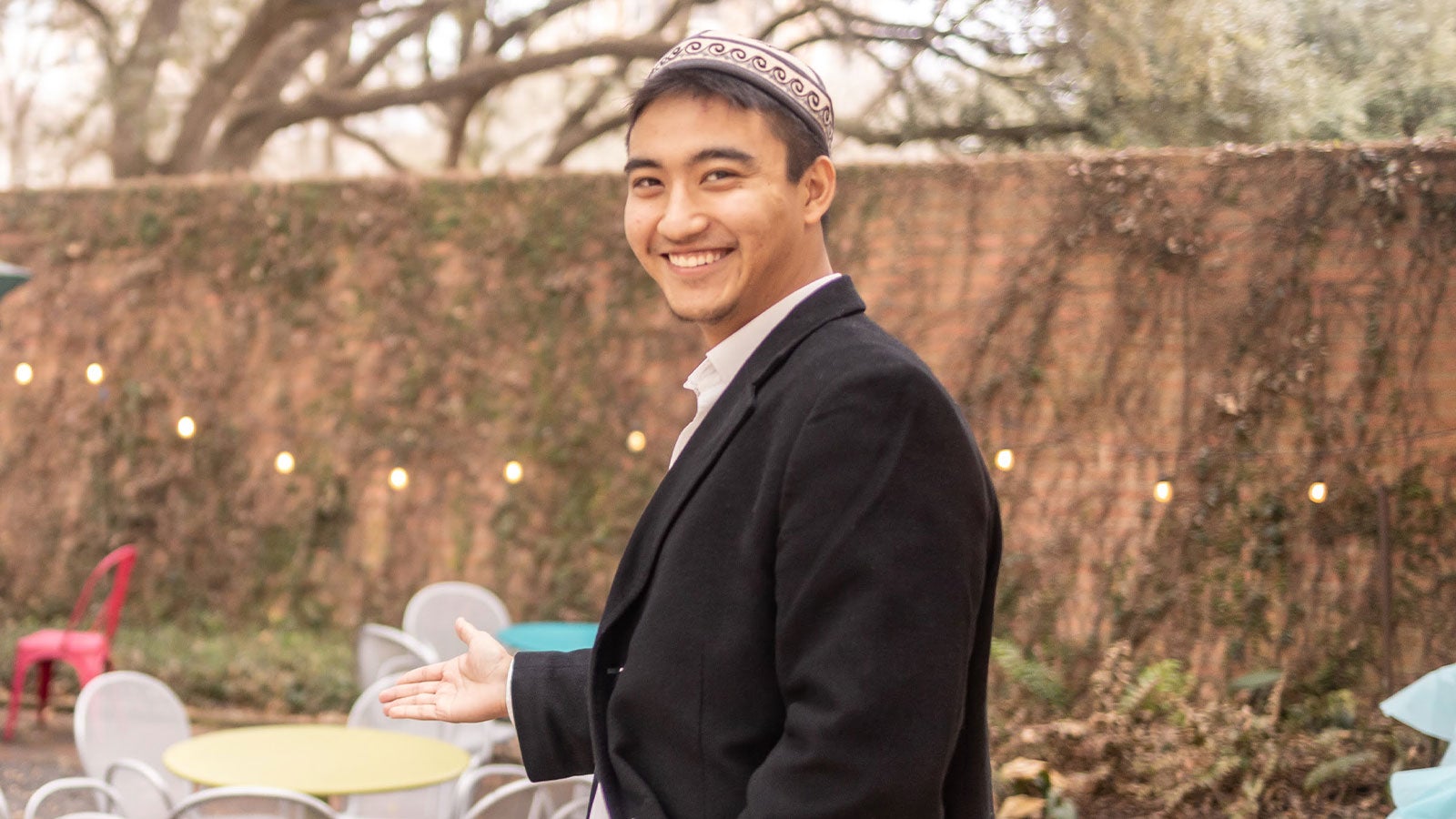Since he was a little boy in Kazakhstan, Bayzhan Mukatay has been an optimist by nature: he assumes every problem has a solution.
“I enjoy fixing things, solving problems,” said Mukatay, a senior in operations research (OR) at Rice. “It makes sense that I would be attracted to OR. I like figuring out the best decisions in systems that seem too complicated.”
Among those problems was the absence of a club for OR students at Rice. Andrew Schaefer, Noah Harding Chair and Professor of Computational Applied Mathematics and Operations Research (CMOR), suggested Mukatay start a student chapter of the Institute for Operations Research and the Management Sciences (INFORMS), the largest OR professional organization in the world, with almost 13,000 members.
The group’s leadership team also includes Kathryn Jarjoura, Daniel Suarez and Isabel Ruble, all of whom are seniors in OR; Gavin Daves, a junior in OR and statistics; and Michael Khalfin, a junior in OR.
Operations research is a discipline devoted to problem-solving and decision-making that uses analytical methods to assist the management of organizations. Its formal recognition at Rice was signaled in 2022 when the Department of Computational and Applied Mathematics (CAAM) changed its name to Computational Applied Mathematics and Operations Research (CMOR).
“My colleagues and I have been trying to start a Rice INFORMS student chapter for several years now,” said Schaefer, an INFORMS fellow and the Rice chapter’s adviser, “but we couldn’t get enough student involvement to get it off the ground. That has changed. Bayzhan and the rest of the leadership team have been superb. They’ve created a vibrant community among Rice undergraduates.”
The chapter has roughly 35 active members and has already hosted five events, including a collaborative session with the Houston INFORMS chapter that explored industrial applications for OR. Rice INFORMS organized an industry panel featuring experts from Amazon, Delta Air Lines, Energy Trading Analytics, Accenture and Exxon.
“We held two academic advising sessions to help undergraduate students plan their OR curriculum,” Mukatay said, “and volunteered at the 2024 INFORMS Optimization Society Conference.”
Mukatay and the others organized the inaugural semester-long program they named DecisionLab, a platform for hands-on learning opportunities in decision science and data science. In their first cohort in the spring, thirty students collaborated on five projects involving optimization, simulation, AI and stochastic modeling for solving real-world problems. At the end of the semester, the teams presented their projects at the DecisionLab Showcase organized by the leadership team.
Working with Illya Hicks, Trustee Professor and department chair of CMOR, Mukatay has devised a Python-based exam-schedule generator for Rice’s 4,480 students. It reduces scheduling time by 95 percent and decreases conflicts by 90 percent, while meeting university requirements and staff preferences. It will be presented to the registrar’s office. In addition, Mukatay is evaluating a way to reduce food waste in the campus serveries.
Mukatay is also working in the dynamic matching field under the mentorship of Süleyman Kerimov, assistant professor of operations management in the Jesse H. Jones Graduate School of Business at Rice, and Sebastian Perez Salazar, assistant professor of CMOR. They worked on optimizing the living donor kidney exchange system.
That research prepared Mukatay for his summer internship in New York University’s Grossman School of Medicine, where he works on enhancing the methods for continuous distribution of kidneys using simulation and optimization methods.
“What seems like chaos or a complex problem often hides an elegant solution, or at the very least, an elegant approximation. That's the essence of operations research,” Mukatay said.

